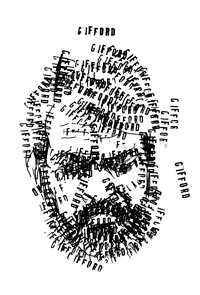Last year I wrote a profile for Deadspin on the late George Kimball. It began as an interview for this site, conducted via e-mail, ostensibly to promote “At the Fights,” a boxing compilation George co-edited with John Schulian. Once I learned about what a fascinating life George had led, I decided to write a longer piece instead. However, I had five months worth of e-mail exchanges on my hand, George musing about his childhood and his career. I’ve compiled them here, and while the following in no way presents a complete portrait of his life, I think you will enjoy a little more Kimball.
Bronx Banter: Your father was a career military man and you grew up all over the world. Did you follow boxing at all as a kid?
George Kimball: Aha, so this is going to be one of those psychological-minded interviews. My wife Marge would like that. She’s a shrink and says I’m the least psychological-minded person she knows. Sure, I watched the fights on TV with my father (and with his father) from the mid 50s on. It was a revelation to me at the live readings we did on each coast last year for The Fighter Still Remains to learn how just many of the people involved in that book had initially come to boxing the same way, as a sort of connection to their fathers at a time when there might not have been much else that did connect them.
Beginning in late ’57, which is when we moved to Germany, I followed boxing quite avidly in the papers, or really, paper. (There was an English-language weekly called The Overseas Family that covered our high school games but not much on a global scale.) Stars and Stripes, on the other hand, was a daily that carried pretty extensive coverage of both the important professional bouts (Robinson’s and Patterson’s in particular) as well as the military ones that took place in Europe, which were considered a pretty big deal, particularly as we edged toward the ’60 Olympics, which were going to be in Rome. So I’d have certainly known who all the professional champions and most of the contenders were, as well as the top Europeans (like Laszlo Papp, for instance). I don’t recall that we attended any of the bouts on the bases where we were (my father was stationed at Bamberg and Bayreuth, and I went away to the American school in Nurnberg), none of which harbored any of the really promising service amateurs, but I monitored the progress of “our” boxers – the Army guys stationed elsewhere in Europe – as they all fell by the wayside on the road to Rome with one notable exception, Sgt. Eddie Crook, who wound up being one of three U.S. boxing gold medalists in Rome. (Cassius Clay and Skeeter McClure were the others.) I liked Clay even then, since he was from Louisville, my mother’s hometown.
I don’t know that I regarded it as crushing at the time, but the Rome Olympics actually coincided with our move back to the states. I watched a lot of the Games at the home of one grandparent or another as we spent a few weeks visiting both after having been out of the country for three years. I don’t know that I’d have been able to attend had we stayed in Europe even a few weeks longer, but I had gone to Rome the previous summer, so it wouldn’t have been out of the question.
I played football and basketball at Nurnberg, and ran track in the spring. Summers I played in an AYA baseball league made up of towns that had bases. The football away games were same-day trips, but in basketball every other weekend there’d be a road trip – like you’d play a game in Munich or Heidelberg on Friday night, stay overnight, and then play in Augsburg or Mannheim on Saturday afternoon and bus back to Nurnberg on Saturday night.
The Army also had a really top-flight league of post teams that played a regular schedule, mostly, I think, on Sunday afternoons. The teams were open to everybody stationed there, so what you wound up with at a relatively large post like Bamberg was virtually a college all-star team. Everybody used to turn out to watch the home games, and I watched a lot of those on weekends when I went home. (They even used to broadcast a game of the week on AFN.) Eddie Crook, by the way, was the quarterback for the Berlin team, which was all the more unusual because most of the guys in his huddle would have been officers. He was the first black quarterback I’d ever seen, at any level.
BB: What was it like following sports when you moved around so much?
GK: My father followed the NFL avidly, or at least he did after we came back to the states in 1960 when there was football on television every Sunday no matter where you lived. We were in San Antonio my senior year, and also got the AFL games on TV. My old man had played both football and baseball at UMass (when it was still Mass State) and followed both sports. I remember sitting up with a couple of my classmates in the dorm in Nurnberg, charting the Colts-Giants overtime game off the radio broadcast. That was pretty exciting even on the radio, believe it or not.
Even moving around, you maintained your allegiances. I was a Red Sox and Cardinals fan and religiously followed both teams, even though in some cases the news and box scores were two days old.
That year in San Antonio I was working for nights 75 cents an hour, first sacking groceries and then, once I got my license, delivering prescriptions for a pharmacy, and without telling anyone saved up enough to buy two tickets to the first AFL championship game in Houston. Once the tickets came in the mail I still had a problem, because Houston was three hours away and I needed the family car to drive there with my date. When I finally worked up the nerve to ask my father his solution was that sure, I could borrow his car – as long as he got to use the other ticket. So I ended up at Jeppesen Stadium in Houston watching that game with my father.
BB: Were you tight with your siblings?
GK: Probably less so than would have been the case with an average family, simply because of the circumstances in which I grew up. My brother Tim, who is just a year and a half younger, only spent one year at Nurnberg when I was going there, and apart from my senior year in Texas I really didn’t live year-round with my family after my freshman year in high school. I was quite a bit older – six years older than the next-closest sibling – and my youngest brother wasn’t even born until I was in my second year of college. The age gap tends to shrink with the passage of time, so I’m probably more in contact with, and closer to, most of them now than I was when we were growing up.
BB: Did you read any sports writers as a kid?
GK: I think one of the early sportswriters I read avidly must have been Earl Ruby, of the Louisville Courier Journal. I also came across a collection of Furman Bisher’s pretty early on. I was reading constantly, absolutely haunted the library, but probably didn’t read a hell of a lot of sports books per se, and wasn’t much exposed to the great ones unless they were already dead and collected, like maybe Grantland Rice or Ring Lardner. I couldn’t have been more than ten or eleven when I read a collection of Irvin S. Cobb that my mother owned. But I don’t think I even began to form an idea that great sports writing could also be great writing until I started to pay attention to Sports Illustrated, which would have been the fall of 1960. I don’t know that we ever saw SI in Germany.
BB: Sounds like sports played an important part of your childhood. What about the arts? Was their music in your house as a kid? Movies, radio? What about books?
GK: That was always pretty important to me. When we were in Bayreuth I used to go to the Wagner festival with my mother because my father hated opera. I think my parents liked musicals even as much as I did, so that was there from an early age. I played the trumpet for a while and liked a lot of jazz. My parents had some jazz records, but I was the one, at probably age 15, who brought Charlie Parker into the house, and who introduced them to Miles Davis, Gerry Mulligan, and Chet Baker. Of course I listened to early rock, as did my contemporaries. Everybody listened to that, but only a few of my contemporaries were as into jazz as I was, and the number that listened to Broadway musical scores was even smaller, so when I listened to Rogers and Hammerstein or Mario Lanza, a lot of times it was alone in my room. Didn’t listen to much radio at all, that I can remember, apart from in the car.
I pretty much lived in the library, even in Germany. I’d even take dates there. No matter what else I was doing I was probably reading at least a couple of books a week for almost as long as I can remember. Movies were important during the years I lived in Germany. The new films would eventually get there, so we didn’t feel cheated that they’d been out for a few months in the states, and I can’t remember whether they cost 15 cents or a quarter, but they were certainly affordable. We had one night a week in Nurnberg where you could sign out for an early film, and then on weekends I’d usually see one too.
BB: I know you are a fan of musicals. I think Kiss Me, Kate was the first long-playing record my dad ever bought—he was six or seven years older than you.
GK: I first saw Kiss Me, Kate performed at Garmisch-Partenkirchen, in the Alps, in 1959. Went with my mother because my father didn’t want to go. I think we had all of the early Rogers and Hammerstein cast recordings at the house when I was growing up – Carousel, Oklahoma, South Pacific and The King and I, and I eventually saw all of those done in New York, in London, in regional theatre, what have you. Even saw Kiss Me, Kate on Broadway about ten years ago. I think the Rogers and Hammerstein led me back to their earlier collaborators like Lorenz Hart and Jerome Kern and their spiritual descendants like Lerner and Loewe, or Frank Loesser. I think there was a definable Golden Age that began in the late ‘20s with Show Boat and ended probably fifty years ago which was marked by a greatness that’s never been achieved since, which is why I enjoy the revivals more than most new musicals. I saw the Lincoln Center South Pacific nine times in three years, I think (and a few weeks ago I took Danny Burstein to DiBella’s boxing card at B.B. King’s.). At their best there were others in this era like Cole Porter and Irving Berlin who could be great but I thought both inconsistent. Annie Get Your Gun, for instance, is brilliant (despite a notably dumb book), and right up there with the best of Rogers and Hammerstein, but Berlin wrote some shows I wouldn’t want to even sit through. I think the symbiosis of great lyricists and composers is what defined these. I love West Side Story, for instance, but never warmed to some of Bernstein’s film scores, and I think Sondheim did his best work on that one when he was a lyricist, period. I like some of his stuff, and hope to go see Danny and Bernadette Peters do Follies at the Kennedy Center in May, but I don’t see Sondheim as an heir to the tradition.
BB: What about Gilbert and Sullivan?
GK: Gilbert and Sullivan is an acquired taste I guess I never acquired. It’s cute, but I don’t think especially good musically, and it makes you work to get the lyrics, which isn’t the way it’s supposed to be. I don’t think I’ve ever walked around with a Gilbert and Sullivan song in my head, for instance, but with some of these other classics, especially Rogers and Hammerstein, it happens all the time. Some of the movie recordings of Rogers and Hammerstein were quite good even if the movies themselves weren’t. John Raitt was the original Billy in Carousel, around the time I was born, and I met him years later when I had dinner with him and Bonnie.
BB: You would have been a teenager when Lenny Bruce and Mort Sahl and Nichols and May were hitting the scene. Did you follow any comedians?
GK: Comedy? Being in Germany from 1957-1960 was like a time warp in that respect. The PX didn’t stock Lenny Bruce or even Mort Sahl, so for my friends and me they might as well not have existed. Nichols and May I read about in Time magazine, I think, but never heard them till I came back to the states. Hell, I think it was 1962 or 63 before I ever heard Lord Buckley. If I listened to any comedy at all overseas I think it was Stan Freberg or Victor Borge, and Newhart came along about ‘60, I think. I probably read Sahl before I ever heard him, and was way late in coming to Lenny Bruce.
BB: At what time did you find yourself starting to rebel against your father, and right-wing politics in general?
GK: I’d say the first conflicts that were plainly philosophical and political (as opposed to just generational) came my freshman year in college at Kansas. Almost from the moment I got to KU I was hanging with the “beatniks,” the painters and poets and musicians and actors, even though I was a clean-cut ROTC Midshipman who had to wear my uniform to class a couple of days a week. I liked Lawrence but intensely disliked the discipline and even the curriculum. (I had a few electives but was required to take physics and calculus, both of which I absolutely hated and still don’t understand the first thing about.) So the battle lines were first probably drawn even then. Before the year was out I’d dropped out of school (and ROTC) and wound up back in Massachusetts, living on my own and working at an amusement park in Hull; my grandparents lived in the adjacent town.
What remained of getting an education was pretty much up to me from then on. My father’s thinking was that since I’d been the one who fucked up the free ride, I was on my own, and he followed pretty much the same guidelines with all my brothers and sisters if they dropped out or changed curriculums or whatever, and surprisingly, most of them did. My brother Tim quit the University of Louisville and joined the Army; my sister Jennifer had a full ride at Hollins, but after her junior year at the Sorbonne decided to stay on in Paris, and I think my two youngest brothers both wound up on academic probation at Alabama, which really takes some doing. Even my sister Becky blew up at band scholarship at the University of Kentucky when she switched from music to a journalism major. With me as with them he’d have still been willing to help out with college if I’d been willing to live at home and commute. That of course was unthinkable to me, though a few of the others did that after frittering away their scholarships; the closest I came was that one summer, when my father was in Laos, I stayed at their house and took classes at St. Mary’s while driving a taxi in Leavenworth on the night shift; in one of the high points of my academic career I wound up getting an A in a ‘Philosophy of Communism’ course taught by a Sister of Charity with whom I had verbally jousted every single day that summer.
By then there were lots of times when my father and I barely spoke, but I distinctly remember at the end of spring break 1963, the night before I was taking off again, leaving at the crack of dawn to thumb back to Boston and Massachusetts Bay Community College, which he considered a total waste of time on my part – he was probably right, but it was one of the few places where I could afford the tuition and still keep 1,500 miles between me and my parents – we watched the fatal Emile Griffith-Benny Paret fight together.
BB: Tell me about going to school at KU with Gayle Sayers and Bill James. Did you know either of them at all?
GK: The first time I saw Sayers touch a football I knew that if what he was playing was football, I’d been playing a game that should have had a different name. He was that much better than not just me, but everybody else, too. As freshmen we lived on the same floor in the same dorm, but he was pretty distant and intimidating, so there wasn’t a lot of conversation between us even when we’d find ourselves watching TV together. (Somebody once warned me that he didn’t like white people, and another guy corrected him and said, “He doesn’t like ANYBODY.”) It was years later that we talked about this and he said that his attitude at that time had really been a defense mechanism, because he was afraid he didn’t belong in college at all and was basically terrified by his circumstances.
I didn’t actually meet Bill James until much later, I think in the very early ‘80s, just after I’d started at the Herald, at Fenway Park. Glenn Stout brought Bill to Opening Day, and knew I’d be sitting in the bleachers as I always did on Opening Day back then, so it was really Glenn who introduced us. Bill told me on that occasion that he had voted for me when I ran for sheriff in 1970. Of course if everyone who’s told me that in the years since actually had voted for me, I’d have won the fucking election. It’s really too bad that Bill and Susan moved to Boston at pretty much exactly the same time I moved to New York, because I’d liked to have seen more of them. As it is, we cross paths occasionally in Lawrence now but even then only rarely.
BB: Did growing up in a military family fuel your rebellious nature? And even when you weren’t on speaking terms with your father did you seek his approval?
GK: I don’t know that it fueled any rebellious nature, though it obviously ended up that way on my part, as it did with some of the guys I’d gone to school with. But an amazing preponderance of my classmates ended up in the military themselves, or married career soldiers, and a lot of those that didn’t wound up Republicans, so I don’t think I was part of any identifiable trend. Best way I can answer that was that however strained everything else got, sports was always a common ground, and we could always get through a football game without an argument.
BB: How did you lose your eye?
GK: Short answer is that I was the runner-up in a dispute with a guy who broke a quart beer bottle over my face at a party on Beacon Hill in early ‘64. (He thought I was laughing at him; I wasn’t) He was a pretty paranoid black guy. I’d just walked back from the liquor store with a case of beer when his girlfriend introduced us, and when I then shouted across the room to a friend asking for a church key he grabbed me and said “Hey man, you going for a blade?” I thought he was kidding and kind of shook my arm free and started to walk away. He hit me full-force from behind, cut up my face but more importantly the eye just exploded.
BB: And so when did you meet Hunter S. Thompson?
GK: Met Hunter in ‘67 or ‘68 in New York. I was working for his agent at the time Hell’s Angels book was published, and subletting my apartment from Paul Blackburn, whose wife Sara had been the editor who brought Hunter to Random House.
BB: And you got a piece in the Paris Review, right?
GK: My Paris Review publication was poetry, as was most of what I published in various little magazines beginning about 1965. I was pretty much a fixture around the St. Mark’s poetry project back then, and half the poets in the country must have lived within a few blocks of me when I lived first on Avenue C and then on East 7th Street, next door to McSorley’s. I did do a book review (of Ishmael Reed’s The Freelance Pallbearers for a soft-core mag called Escapade, one of several Playboy knockoffs that were going at the time. (Ishmael claimed that I’d been the only white reviewer who understood his book.) These mags were supporting quite a few people back then – Baldwin covered the Liston-Patterson fight for Nugget, for instance.
BB: Who were you reading in those days? Was Terry Southern an influence at all?
GK: There were a lot of people besides poets hanging around the St. Mark’s scene then—folk singers, painters, etc. were also plentiful, and Terry Southern was one of them. I think when I first met him I’d read only Candy (which Girodias re-issued, along with Donleavy’s The Ginger Man, when he set up shop in New York; those books had exactly the same cover as Only Skin Deep, so I always made sure bookshops in places like Iowa City ordered all three titles. Not quite by coincidence Hamill and I are going to the Tibor de Nagy gallery today to see this poets and painters show from that era, and I imagine I’ll see a lot of collaborations between friends of mine from the ’60s.
I was still reading anything and everything, but during the decade of the ’60s read pretty much everything Kerouac, Donleavy, Baldwin, etc. had written. But I also managed to read Liebling, Budd Schulberg, et al too. I read most of Mailer but wasn’t bowled over even by his best – and I was working for his agent from late ’66 to ’68. And of course even when I was spending my nights at poetry readings and gatherings I was reading the New York sports pages religiously. By ’68 or so I’d met Larry Merchant and Vic Ziegel and Lenny Shecter at the Lions Head, and about the same time became friends with Hamill and Joe Flaherty. Only Skin Deep, which was published in September of ’68, mentions Merchant and Jim Carroll’s Basketball Diaries, which made it pretty unique in the world of international porn. The publication party was at the Lions Head the night before I left for Iowa, and when Andy Warhol showed up it was the first time he’d gone out in public since he got shot by Valerie Solanis earlier in the year.
BB: I ate dinner with Vic once before he passed away and he told me about worshipping at the altar of Lenny Shecter, who is tragically overlooked these days. I think Shecter’s hard cynicism is close to some of the Deadspin sensibility. Do you think he would have eventually quit writing about sports altogether if he had stayed alive? His collection The Jocks showed that he had much contempt for big time sports.
GK: Odd thing about Lenny was that for all the humor he evinced in his writing he really didn’t have a great sense of humor, or at least didn’t really seem to enjoy himself the way his acolytes like Vic and Larry did. Lenny was, of course, the original “chipmunk,” but while it was easy to picture Larry and Vic and Stan Isaacs as “chipmunks,” the term seemed misapplied when applied to Lenny. I think you’re right that he was really sick and tired of sports, and given the financial cushion that came with Ball Four he probably would have completely moved on. But he could be almost nasty when he thought he was right and you were wrong. I remember being in New York and at the head a week or so after I’d gone up to see Jim Bouton, who was plotting some sort of comeback, pitch a few innings, I think it was, in a minor league game out in Pittsfield, and I’d described the way some 20 year-old hitter had almost gone into contortions over a knuckler. Lenny says, “Couldn’t have happened. Jim told me he only threw smoke that day,” and I say, “Lenny, I was there. He didn’t throw a lot of them, but he threw one to that batter.” “Maybe it was just a change-up you saw,” he says. I finally said “Lenny, give me a little credit here. I know a fucking knuckleball when I see one.” Really odd because he always had to get the last word in, and this time wanted to argue something I’d seen and he hadn’t.
Another night I was in the head with Leigh Montville and this doll about 25 appears at the bar. Leigh wants to know what her story was and I told him. “She’s a sportswriter groupie.” He of course refuses to believe that there is such a thing, let alone one this good looking. He finally tries to strike up a conversation and she says, “Have you guys seen Lenny Shecter? I’m supposed to meet him here tonight.” Lenny was twice her age and didn’t exactly have movie star looks, so Montville was really impressed that he had groupies.
BB: Did you guys all admire Jimmy Breslin?
GK: Sure, everybody admired Breslin. I’d read him religiously long before I met him. He wasn’t around the bar a lot but his column was a topic of conversation almost any day it ran.
BB: Did most of the Lion’s Head guys stick to booze or did they smoke a lot of weed and take harder drugs too?
GK: Most were strictly drinkers, a few guys smoked weed but more at parties or at home. The most obvious exception was Wes Joice, the owner. Even back in the ‘60s it was a running joke that he was perpetually stoned the way some drunks never sober up. Pretty much as soon as he finished his first cup of coffee he’d go down to the office to smoke a joint. He often invited me down, but got so I rarely went because the shit he was smoking was so powerful it would leave me catatonic.
By the ‘80s Wes, along with most of the American and National Leagues, had graduated to coke. Now I usually would accept if he invited me down to the inner sanctum. One night Bob Arum was with me when he did and Bob did one of those numbers straight out of Annie Hall, not knowing what he was doing, exhaled when he should have inhaled and blew a couple hundred dollars worth of cocaine all over the office. Sometimes this would be decent stuff, more often not. There was a dealer (later immortalized as “the Weasel” in Kinky Friedman’s Greenwich Killing Time), you could have set your watch by. Six o’clock every evening, rain or shine, he’d walk down the steps, and for a couple of hours he’d conduct a lively business out of the men’s room at the Lions Head. It got so sometimes you’d walk in to take a piss and on right top of the toilet paper dispenser there’d be a couple of lines just sitting there that somebody had laid out and then been so fucked up that they forgot to snort it. His shit was quite mediocre and the standard line was that if John Belushi had only known the Weasel he’d have been alive today.
BB: How big of a deal was Harpers magazine during those years, the Willie Morris time? And were guys like David Halberstam and Gay Talese widely admired in your downtown scene?
GK: Harpers was a bigger deal in some circles that I was really more on the fringe of, like George Plimpton’s, but not so much among the people I hung out with regularly. I don’t know that it’s accurate, but my impression was always that Willie Morris seemed to think of himself as much more important and influential, or maybe just relevant, than he and it actually were, at least to most people I’d have hung out with. I don’t even mean that disparagingly; it’s just that Harpers rarely even crossed my mind and I couldn’t imagine that there were actually people who spent much time thinking about its place in the literary firmament.
I had lunch with Hamill today after we toured the poets and painters show at the Tibor de Nagy. The curator came out and introduced himself and gave us each a hardbound catalogue ($40) when we left. I was mainly trying to get some stuff for the profile for the Boxing Writers Dinner program but as usual Pete had all kinds of mots to offer. Not sure you can use this in your Cannon project but Pete recalled that Cannon said of James Baldwin’s status as a double-minority something along the lines of “the poor guy wants to ride in the front of the bus–and do it wearing a dress!”
And some great Mailer stories: Apparently Mailer and Bruce Jay Friedman came to blows at a party in Brooklyn that wound up on the sidewalk below, and Friedman kicked the shit out of Norman by the time their friends moved in to stop it. Friedman, who apparently didn’t want to be responsible for diminishing the future of American letters: “I was doing everything I could to keep from hitting him in the head!”
Pete also remembered covering the Democratic convention in ‘64 when his wife went into labor. Pete didn’t have a car and didn’t even drive then, but Mailer drove him from Atlantic City to St. Vincent’s for the birth of his first daughter. “People remember all the crazy shit Mailer did but rarely mention kindnesses like that.” When Norman was drinking said Pete you always knew that danger was right around the corner when he started talking in a faux Texas accent.
He also told me about this building Mailer purchased in upper Manhattan, maybe Inwood or someplace, as both an abode and as an investment. Over the years every time he’d get divorced he’d have to sell off two floors of the building, one to pay the divorce lawyer and another to pay the ex. Eventually he owned only the top floor. The one he lived in.
Never knew Talese back then. At Super Bowl VII I was in LA for the Phoenix and since we were really pinching pennies I was staying with Bill and Susan Cardoso in Hollywood, I think it was. Hunter Thompson was there and had a room at the press hotel but also spent a lot of time out at the house. Apparently a few months earlier Talese had been out there doing his initial research for what eventually must have become Thy Neighbor’s Wife and each evening would come back to Cardoso’s with a detailed report of how many blowjobs he’d gotten that day in the name of research.
BB: My old man was a big drinker but not much of a village guy. He knew Elaine Kaufman when she managed a place in the village and then was a regular during her early years on the Upper East Side. But then he got a job at ABC and mostly drank at Herb Evans until The Ginger Man became his favorite spot. Did you ever go uptown?
GK: I didn’t spend much time in Elaine’s and when I went there it was usually with Pete. I remember going over there after a day game at Yankee Stadium in late ‘79, with this ravishing young thing I’d imported from Newport, Pete (who was driving, the first time I’d ever known him to do that) and Jose Torres and his son. They ushered us straight to a table adjacent to Woody Allen’s. Pete has a great story about the decline of Elaine’s, which he traces to this crash diet and sentence to a fat farm Elaine undertook sometime in the early ’80s. Up until then she’d personally tasted everything the place served, but her diet guru forbade that, so when the chefs started cutting corners and getting sloppy there was nobody to notice, and eventually the food got so bad people stopped going there, or at least stopped eating there, altogether. Elaine eventually started tasting (and got fat) again but it never fully recovered.
I never hung out a lot at the O’Neal/O’Connor bars in NY, but there was one Super Bowl out in LA—maybe the Redskins-Dolphins game—where the Ginger Man in Beverly Hills was sportswriter central, and we were all in there pretty much every night. I’d run into people from Boston and New York I hadn’t seen in ages who were now fully realized Californians. I was in O’Neal’s at Lincoln Center quite a few times in its last couple of years. Including with most of the other speakers (e.g. Quincy Troupe, Ben Stiller, and Jo Loesser) after Budd Schulberg’s Memorial service, and after a South Pacific performance just a few nights before it closed for good.
BB: Was Frederick Exley a regular at the Head?
GK: The thing about Exley was that the guy I knew and drank with in bars, chiefly the Lion’s Head, was almost irreconcilable with the guy who could write something as touching as A Fan’s Notes. I’d come back to New York and Fred had taken up residence at the Head in my absence; I believe David Markson was the original conduit but especially Flaherty and Jeanine were talking him up big time. I’d drunk with him for probably several weeks before I finally got around to reading the book. I was knocked out, not just by how good it was but was stunned to realize that Fred could have written it.
You also ought to try to chase down “The Last Great Saloon,” a piece Fred wrote for GQ about the Lion’s Head in December of either ’91 or ’92.
BB: That was a good one, but how much of it was true?
GK: Fred’s description of me with great danes and bullwhips was a product of his imagination and had nothing to do with my book, Only Skin Deep. Fred was a terrific novelist but had his shortcomings as a reporter. I’m surprised that GQ didn’t have a fact-checker, or at least run some of that stuff by me.
BB: I also read Joe Flaherty’s piece on you for the Village Voice around the time you ran for sheriff. Did you really take your glass eye out and leave it people’s drinks?
GK: In my younger days I did get some mileage out of that. I did some pretty outrageous stuff, but obviously Joe embellished somewhat—though not as much as Fred, who created tales out of whole cloth.
BB: Did you really call Mayor Lindsay a tight-assed WASP and bless his forehead with ashes from an ashtray?
GK: Evidently.
BB: Do you think the tendency is to print the legend instead of the truth?
GK: Partly, but that would be speculation. There was a lot of that around the Lion’s Head in the late ‘60s, Fred and David Markson and others, and I’d include myself in that category, who did a lot more sitting around the bar talking about writing than actual writing (this would be the ‘69 and ‘70 interludes when I was in New York after Iowa and then in early ‘70 before I went back to Lawrence).
BB: Why did you leave New York?
GK: Combination of a lot of things. My marriage had ended, and while it was a pretty eventful and enjoyable summer, I could sense that things were winding down for me in NYC and that nothing really promising loomed on the horizon. Paul Blackburn, from whom I’d sublet the apartment on East 7th St., was returning from his Guggenheim in September, and I’d have had to find new digs anyway. Ted Berrigan, one of my friends in New York, was headed out to Iowa to teach, as was Anselm Hollo, who had come over from England and hung out with me for a time that summer, was too. After a decidedly undistinguished academic career Iowa seemed to offer a fast track to Master’s Degree, no heavy lifting, so I decided to make a clean break. Got a driveway car, a new VW an army officer returning from Germany had shipped over (big savings on duty); I was supposed pick it up in Brooklyn and take it to him in Omaha. Loaded all my stuff into a U-Haul trailer with a hitch, put the dog (and a cat, a last-minute acquisition from McSorleys, where they said they were going to drown it if nobody had taken it by last call), and lit out for Iowa City. Dropped my stuff there and then proceeded to Nebraska to face the music – the weight of the trailer hitch had ripped open a pretty conspicuous gash in the rear bumper, which the Captain didn’t much appreciate at all, but there wasn’t a lot he could do about it.
BB: Did you have any concrete notion that you wanted to be a writer yet?
GK: I was scuffling to sell some freelance work, most notably my DB, Only Skin Deep, which was one of the first Girodias bought when he fled Paris and set up here. Even though I was short a bachelor’s degree they got me conditionally accepted and even the promise of funding at the Workshop, where I was one of the few actually doing both fiction and poetry. Most people had to pick one or the other. I shared a house with Hollo, and Berrigan taught my poetry section. Bob Bolles was my fiction teacher, and I think he was almost intimidated by some of the talent in that room – not just me but Tom McHale and Asa Baber and Eddie Gubar. Robert Coover was my thesis adviser, but we didn’t really see eye to eye so I didn’t consult him a lot. I always knew I would earn my living writing something. And while I’d written sports for newspapers before I wrote anything else, the idea that I’d do it for 35 years had yet to occur to me then.
BB: You then had a memorable summer running for sheriff in Lawrence, Kansas. What inspired that?
GK: The original plan was that it would provide a format for guerrilla-type street theatre that would last through the summer (my platform included subsidies for marijuana farmers etc.). Although Hunter Thompson ran for sheriff in Aspen and Stew Albert in Oakland, none of us had discussed it with the others beforehand and none knew the others were even going to run, although I did later visit Hunter for a ‘summit’ conference in Aspen after I’d won the primary. The only ones I discussed the sheriff campaign with before returning to Lawrence from New York in the spring of 1970 were Ed Sanders and Jerry Rubin, both of whom encouraged it.
In Lawrence I had announced I was running under the Youth International Party banner, so it didn’t make a lot of waves. The incumbent Republican sheriff, who had arrested me at an antiwar demonstration in 1965, routinely ran unopposed. I waited until 30 minutes before the filing deadline and then walked into the courthouse, paid a $100 filing fee to run as a Democrat. I knew if I gave them an hour they’d have found somebody to run against me. I was consequently unopposed on the primary ballot and won the Democratic nomination, much to the chagrin of the Democratic Party. At a rally at the state house a few days before the election I wound up in conversation with the governor and someone took a picture of us together. This was after the state party leadership had publicly denounced me. We printed the picture up in hundreds of flyers with the headline “Vote Democratic on Nov. (whatever the date was) Docking for Governor/Kimball for Sheriff.”
In practice things got quite ugly that summer – cops killed two kids, one black and one white, and it turned into open warfare for a while. Because of my visibility I became the go-to guy as a spokesman, and got blamed for everything that happed, much of which I knew nothing about and still don’t. There are some more detailed accounts, as in Rusty Mulholland’s book, available, including online. The Lawrence Journal World and University Daily Kansan both ran lengthy recaps of the summer of ’70 last year, the 40th anniversary.
BB: How did you parents handle the news of your numerous arrests?
GK: My mother still dislikes any mention the arrests; I don’t think she likes having to explain that to her redneck friends. Last time it came up I seem to recall her going into complete denial about it, in fact. The one in Lawrence in ‘65 she actually came from Colorado and was involved in the negotiation with my lawyer. The judge had originally sentenced me to six months, I guess to teach me a lesson, and let me sweat it out for a couple of days before he paroled me in my father’s custody. (He was a reserve JAG colonel himself and knew my old man.) That’s how I wound up spending that winter in Colorado Springs. Ran the ski lift at the Broadmoor until the snow melted and then worked in the hotel PR department for a month or two before my tolerance (and theirs) became exhausted. Finally bolted under the cover of darkness one night in a ‘54 Ford I’d bought from Peggy Fleming’s father, drove to Lawrence and then New York.
Anyway, the point being that because that was the only one she was personally involved in, my mother has over the years persuaded herself that it must have been the only arrest. There were actually a few others, including one in Wichita in 1970 that was on the front page of the paper, since the asshole who personally arrested me, Vern Miller, was the Sedgwick County sheriff who was running for Attorney General the same year I ran for sheriff in Douglas County. The headline in the Wichita paper the next morning read “George Kimball Arrested,” over a picture of me being led away in cuffs. I’d been speaking at a rally protesting the presence of Spiro Agnew, who’d flown in to stump for the incumbent attorney general, Kent Frizell, who was running for governor in another tight race. (He lost.) When Miller busted me, I just shook my head and told him, quietly, “Vern, you’re going to start a riot here,” and he did. I sat there in jail that night thinking to myself, “You stupid bastard. You just got that motherfucker elected,” which turned out to be the case.
Besides personally leading several drug raids in Lawrence, one of Vern’s first acts in office was to board an Amtrak train traveling through Kansas with an armed posse and take the bartender in the bar car into custody for serving liquor by the drink inside the borders of Kansas. (It was still illegal at the time for bars to serve anything but 3.2 beer.) He then wanted to put undercover agents on planes and bust the stewardess’ for serving drinks in Kansas airspace, but wiser heads prevailed. A few years later I met a guy in Boston – he phoned me up and arranged a meeting – who, actually – no shit – wrote an opera about all of this. Vern and I were the leads. I don’t think it ever got performed.
BB: That’s hilarious. Wasn’t there a confrontation with a cop in there? Didn’t you throw a punch at an officer?
GK: The ‘65 arrest was for carrying a “Fuck the Draft” sign at an antiwar rally in Lawrence. I don’t know that I’d describe it as a punch; I swung but it was more of a forearm shiver. He’d thrown me up against a car while the woman he claimed wasn’t in need of medical attention was collapsing to the sidewalk behind him. I was charged with assaulting an officer, but when it came to trial not even the cop’s own partner would testify for him so it got tossed. I don’t know when or if they expunge those things; there might be a record of it but I wouldn’t want to go nosing around since I think there might still be a hot possession of marijuana charge floating around down there, though for instance when I’ve gotten stopped on a couple of motor violations nothing popped up when they phoned me in.
(The most recent of those I was driving around the block at about 15 mph during street cleaning, and got stopped for no seat belt. I thought it was really chickenshit, but then I realized the real reason for it. It was during the ‘04 playoffs, and I had a Massachusetts car with Herald on the license plate.)
BB: When Miller arrested you, you told him that he was going to incite a riot when he arrested you. What kind of riot was there, if any?
GK: I’ve been in better riots, but considering there was no trouble until he arrested me, any riot there was plainly his doing. I was only in the Wichita jail overnight. By early light I’d been bailed out and was on my way back to Lawrence.
BB: How long was it before the election?
GK: I think it was November. It was just before the election, anyway.
BB: When did you leave Kansas?
GK: We left within a matter of days, not in response to Vern’s threats, but because I’d promised my wife we were going to move back East and that I’d start writing and earning a living. It had been a fun six months or so but we were awfully poor. The grand I got from Scanlan’s monthly was the only real money I’d earned, and the only thing I’d written. If I stayed in Kansas the only way to earn a decent living would have been on some level of the dope harvest, and I was way too paranoid to make a good criminal.
BB: When you too off, did you think “Well, that was fun?” Now, time to get serious and make some money?
GK: Yes and no. I didn’t want to trivialize the experience by looking like I was cashing in on it right away, so I pretty consistently resisted entreaties to write a book about the campaign. Ed Sanders, for one, really pushed me to do that. I did write the piece for the Realist (mainly because I needed the dough, $300 I think). Paul had asked me, Hunter, and Stew Albert to do separate pieces. Stew and I did ours and Hunter never did, so he finally just ran ours.
BB: So it wasn’t just theater?
GK: I wouldn’t say that. I didn’t want the guys who had gotten killed, and the people who had worked on the campaign, to suddenly look like they’d been bit players in a scheme to get me a book contract.1970 was in that respect the tail end of the 60s. What was mine was yours and what was yours was mine, that sort of stuff. We didn’t stay very much out at the A-Frame (for one thing it would have been dangerous; somebody would have had to stay up as an armed guard against a redneck attack). From Sept onward we shared a house with another couple in Lawrence. She was a grad student, he a dope dealer, and since nobody had any discernible income they (and I think maybe we, eventually) discovered they were eligible for food stamps.
I also had sort of an arrangement at the Gaslight Tavern. If I was around and it got busy (which it did at lunchtime almost any day during the week) I’d jump behind the bar and tend bar while he cooked and the other bartender worked the tables. He might or might not throw me a few bucks but in any case I didn’t have to pay for food, and rarely even for beer, there. It worked pretty well, since he didn’t have to bring in somebody to work a whole shift, which I had no interest in doing anyway. I’d worked at the bookstore next door several years earlier and knew these guys pretty well. Also next door was a barber shop. Obviously they didn’t cut any hippies’ hair, but I used to go in and shoot the shit with the barbers, talk baseball and football, so they knew I was OK.
BB: How did your father handle all of this?
GK: Like my mother, he had firsthand knowledge only of the Lawrence one, though he had clearance and could have viewed my file. Army intelligence also had one on me. I don’t recall ever asked me about the other arrests, though we weren’t talking a lot in those days. Like my mother he was sort of delusional about a lot of this stuff. When my brother Tim returned from Vietnam, got involved with Veterans against the War and participating in protests, for instance, he convinced himself and told people that he must have been doing it as a plant by Army intelligence, which was of course absurd.
By the way, he’d never in a million years have publicly agreed with me about the war, but his enthusiasm for it dampened considerably the second time he was over there, this time as Military Attaché at the embassy in Laos (read: spy.) My uncle Bill, my father’s older brother, thinks he must have witnessed, or had to participate in, some stuff he found so morally abhorrent over there that he began to question in his own mind whether it had all been worth it. He’d never have criticized the U.S., even after he retired, but he plainly no longer wanted to talk about it.
BB: So after all of this craziness in Kansas, how did you wind up in the Boston at the Boston Phoenix?
GK: I’d lived in and gone to school in Boston earlier; my grandparents lived there. Harper Barnes, who went to KU, was editor of the Phoenix; I’d also planned several freelance gigs but once I started at the Phoenix that sort of pushed everything else out of the way as the role grew. Depends on which sport you mean. The Celtics were still rebuilding but extremely accommodating. The Patriots weren’t at first but eventually came around. The Red Sox constantly battled me over access and credentials. Their PR guy, Bill Crowley, was an asshole. Covered lots of things besides sports in those days, especially politics and music.
BB: How Mike Lupica did come to the Phoenix?
GK: Lupica I’d met through Bob Ryan in 1971, I believe, when he was still at BC. I hired him to do some freelance pieces for a special section we did in ‘72 and they were so good I wound up talking the publisher into hiring him to constitute a full-time sports staff. Then not long after he graduated I think it was the Post hired him. What I didn’t realize was that it was some kind of probationary deal. A couple of months after he went to New York I got a call from somebody in personnel at the Post saying they were considering hiring him full time and asking my opinion, and I said “You mean I can have him back?” She laughed and said that sounded like an endorsement to her.
BB: What about Charlie Pierce?
GK: I met Charlie out in Worcester. I was working on some story and somebody suggested I look him up; he was writing for Worcester magazine, I think. I was the one who introduced him to Bob Sales, who was then the editor of the Phoenix, and Bob hired him, though not to do sports since Michael Gee was already working as my backup, sort of in Lupica’s place. Then I left for the Herald in early 1980, and Charlie did some sports after that. Bob was by then at the Herald, first as managing editor and later as sports editor. He and Don Forst hired me initially, over the objections of the sports editor, who shortly quit. A few years later when he was sports editor Bob hired both Michael and Charlie at the Herald.
BB: What was it like moving from a weekly like the Phoenix to a daily tabloid like the Herald? I assume part of the reason was financial. Did you enjoy the move? What new challenges did it present? Did you write anything but sports at the Herald?
GK: It was only financial in that I took a while negotiating the terms because I didn’t want to sell myself cheap, but mainly it had come time to move on. I’d actually left the Phoenix in November of ‘79, the week Kennedy announced his candidacy, and spent several months freelancing and working with the campaign. I did a few pieces for the Herald in that time, but didn’t actually sign a contract until February.
BB: Were you ever frustrated as a columnist for the Herald? In that you weren’t their number-one columnist?
GK: For about eight years I was the number-one columnist. Once Charlie Pierce arrived he started getting some of the better assignments but I was still the guy who’d go to Super Bowls, playoffs, world series, etc., so that wasn’t frustrating. Even after guys like Callahan and Buckley arrived and pretty much knocked me off most baseball coverage I probably could have lived with it, but for the last ten years after Bob Sales was let go the new sports editor wanted to assign all columns – you had no leeway in choosing what to write about, and in some cases he wanted to dictate point of view even. It got pretty tiresome and frustrating. I had also gotten old enough that since the Post in ‘92 there weren’t any job offers coming in, so I was kind of trapped there. If someone had come along with a buyout offer remotely as good as what I got in ‘05 I’d have jumped at it, but with a wife and two kids in school I wasn’t in a position to make a move.
BB: Did you have a good relationship with your editor Bob Sales when you were at the Herald?
GK: Yes. Like most any writer-editor relationship that lasts nearly 20 years we had our moments of strain, but I enjoyed working with him more than any other sports editor there — particularly his successor.
BB: How long did you work for him at the Herald?
GK: Twice at the Herald. He was the managing editor when I got there in ‘80, then in early ‘82 I think left right after Murdoch takeover. Then came back as sports editor from ‘86-‘95 or so. He and Forst hired me initially.
BB: I just watched a screener copy of a new HBO doc on Borg-McEnroe. They show footage of Charlie Steiner getting into a fight with a Brit in the press room at the ’81 Wimbledon and who should I see in the background?
GK: Yeah, that footage is everywhere — also on a video Not Great Moments in sports. I was the peacemaker. I might have been the only one in the room who knew both guys and figured if I didn’t break them up nobody would, even though neither one wanted to fight very badly. After the third Leonard Duran fight Charlie sat down with me and Stephen Stills at the Mirage and we got to talking about it and Stills was cracking up. I said if you ever want to feel ridiculous try standing in the middle of the Wimbledon press room pleading “Stop it, Nigel!” I believe I kept them apart without ever putting my briefcase down.
BB: I talked to Bill Lee. Said you’d be proud of him, he’s finally become a logger. Said he’s wanted to be one his whole life. That, and a wino. Do you still keep in touch with him?
GK: Last time I saw Bill was in Burlington more than a year ago. My daughter was meeting me there and we were driving up to Montreal for a fight, and Bill drove over and met us at my friends’ house. I’d taken a spill on the train to Newark Airport and broke a couple of ribs, it turned out. He had a deal with the owners at Jay Peak (where Darcy and Sam teach in he ski school) to make bats out of all the hickory they were clearing in their new expansion. He’d just started, and gave me one of the earlier prototypes, basically a mistake. They’d milled it to the precise dimensions of another bat he was using, and hickory being much denser, it was so heavy King Kong would have had trouble getting around on a fastball with it. We took it up to Montreal, but of course I can’t get on a plane with a bat, so Darcy kept it in the car. Later in the summer Teddy went up and spent a week doing trail work for them, and Darcy gave him the Spaceman bat to bring back. He stopped in Boston to see some of his friends, got stoned and fell asleep under a tree in the Boston Common, and walked off and left it. He went back half an hour later but of course by then it was gone.
BB: I was listening to “Boom Boom Mancini” by Warren Zevon. You must have run into him during the course of your travels, right?
GK: During the ‘70s Bill Lee, Dennis Eckersley, and I along with our wives went to see him at the Berklee Performance Center, and Zevon later wrote his song about Bill. I didn’t know him well, though obviously Carl Hiassen did. When we had to clear the permissions for “The Fighter Still Remains” I wound up corresponding with his widow, Crystal (who lived in Vermont but since moved to Western Mass) and his kids and son (who lives in LA). I also have “Werewolves of London” as a ringtone on my phone but can’t remember for who now.
BB: Did you ever miss New York at all in those Herald years?
GK: A bit, but I traveled there a lot on assignments. In ‘92 I came down and worked for the Post for six months, right after Murdoch bought it for the second time, on kind of a lend-lease basis. They wanted me to stay and I would have but for a couple of things. One is that my family was very much against it, the other was that the labor strife was looming, and the editor, Ken Chandler, who was a friend, warned me that if I took the deal they were offering I’d be obligated to cross a picket line. That was a pretty good deal while it lasted. They put me up in hotels, the Herald paid my salary and the Post my expenses, and at the first of every month they handed me a fist full of round-trip shuttle tickets I could use to fly to and from Boston at my discretion, so I could arrange my schedule to be in New York for, say, five days, and then in Boston for five.
BB: Who are some of your favorite athletes that you covered?
GK: There were lots of them: Bill Lee, Jim Willoughby, and Dennis Eckersley remain friends. Ray Leonard, Marvin Hagler, and of course Ali was a joy to cover. Dave Cowens and Kevin McHale were lots of fun to cover, as were guys in the earlier era of the Celtics – John Havlicek, Don Nelson, Don Chaney, and Jo Jo White, whom I had known at KU. I’ve also stayed close to some KU guys. Bud Stallworth I knew (and occasionally played pickup games with) when he was a freshman at KU, and then often got together with him when he was through town in his NBA days. I still see him pretty often and will in Lawrence this week. He and I went to the KU-Va Tech Orange Bowl together a few years ago, and then to the Final Four in San Antonio that April, as did Al Lopes, who was the “other” guard with Jo Jo at KU. Jo Jo got drafted by the Celtics and Al by Uncle Sam. After Vietnam Al went back to law school on the GI Bill and now practices in Lawrence.
BB: Do you ever feel that you didn’t write as much in early years because you were drinking and getting loaded?
GK: I don’t think the drinking and drugging slowed me down when it came to writing. In some cases it probably made the writing better, though I practically never drank till I was done writing and really didn’t do much drugs beyond getting a bit of an edge. But both before and after I was drinking, writing a daily column was extremely taxing mentally, in addition to having to travel to and from events, even home games. It took so much out of me that I’d never have been able to summon the discipline or the energy to write books while I was still doing that. For most of that time I was also playing a lot of golf, which was much more relaxing and didn’t tax you in the same way work did.
BB: When did you quit drinking?
GK: November 1991. As Malachy McCourt likes to say, I’d had enough.
BB: You have such a wide variety of friends and your life seems to be connected by those friendships. For writing, which is such a solitary profession, you seem to have a real need for human relationships.
GK: It’s a real cross-section of people, and it’s kind of fun getting people from those various worlds together who otherwise might never meet. But if there’s anything unique about it, it’s that there’s almost as wide a variation in age as well: Arlen Snyder is 78, and Tom Paxton is over 70 now. Niall Toibin, an actor friend in Dublin, is in his 80s. Some of my New York friends, mostly Lions Head survivors, go back more than 40 years. Pete Hamill and I don’t see each other that often – it probably averages out to once a week – but we email or talk on the phone several times a week. There are guys in Kansas like Jim McCrary I’ve known even longer, and I’ve got younger friends, too – Benn Schulberg and I go to and watch a lot of fights and ball games together; he’s barely into his 30s but then when his father and I used to do the same things, Budd was in his 90s. Lou DiBella is 50 now, but that’s a lot younger than I am, and Anne Tangeman is 45. Mark Horgan, who went out to Kansas with me last week, is only 29, and my godson Kidd Dorn is in his 30s. I’m talking here about people you might walk into my home and see hanging out. Rosalie Sorrels (who introduced me and Marge and is now 78 herself) said when people used to ask her mother why she didn’t hang out with people her own age, she’d reply “People my own age are dead.” I find that’s increasingly true, too. In the last couple of years a bunch of people from the Lions Head started dying in profusion (Jose Torres, Frank McCourt, David Markson, Paul Schiffman).
BB: Were you disappointed or angry when you heard that Hunter S. Thompson had killed himself?
GK: Both, but if I had to choose one I’d say angry.
BB: Did you feel freed up to write more once you retired from the Herald? I read in an interview that you said you feel guilty when you don’t write.
GK: Yes, I obviously had much more time to write. I was already working on Eamonn Coghlan’s book pretty much at time of retirement, and while that experience ended somewhat unhappily I think the discipline and work habits helped in all the other projects. Even though I was writing once a week for the Irish Times and covering things for websites I had a solid block of several hours I’d devote to those each day, and yes, it got so I felt guilty if I didn’t write.
BB: Even though it is difficult now, does writing give you a sense of purpose and identity?
GK: Writers write, although what I find myself doing these days is almost more secretarial work – doing all these interviews, arranging book tour stuff on the limited energy I have doesn’t leave me a lot of time for actual writing. I know I’m not going to have time to write another book (though there will be at least one more new cover, the reissue of Only Skin Deep), but I’m hoping to cover a few more fights, and I’d like to get this play (Bloodsong) finished even though there’s not a chance I’d live long enough to ever see it produced.
BB: Do you have any sense of how you’d like to be remembered?
GK: Why do you think there have been half a dozen books in the past four years?
[Pictures of George were provided by the Kimball family.]































I have no specific recollection of introducing Bill James and George Kimball, but here is how it could have happened:
In the 1980's I'd dress up in an old baseball uniform and read baseball poetry thru a Pignose amp outside Fenway Park on every Opening Day while drinking a liter of Bloody Marys with a bunch of friends. I'd send out press releases and one year George did a whole column on me - that was the first time I met him. Anyway I do recall that one year I happened to end up sitting in the bleachers right behind Terry Kahn, a Boston Editor, who I wrote for in a magazine known as SportBoston. He noticed me, and said he wanted to introduce me to someone one, Bill James. I knew James work from the early Abstracts and was actually pretty excited - but then after drinking a liter of Bloody Marys, it didn't take much to get me excited. Anyway I stood up and stuck out my hand. I remember James turning around, hand out, and freezing when he saw me. He gave me the up and down look and the dead fish shake as I shook his hand and said something like "I enjoy your work." I don't blame him - it must've been the combination of the uniform, the hair down to my ass, and the cigarette and booze breath. Anyway, he just turned around and I don't recall that he ever turned back. It might have been the same game that Bill Lee ended up sitting next to me, and spent the whole game giving the backward fist to the Red Sox. So maybe George was with Bill, and maybe I did introduce him to James, but, understandably, I don't remember much and I'm not even sure of this much.
Those were the days. Fenwasy Park isn't like that anymore.
Priceless story, man.
Yeah, the parks aren't the same these days. Reminds me of Mark Lamster's Lasting Yankee Stadium Memory about Melle Mel, Busy Bee and the old bleacher creatures: http://bit.ly/rqrFej
[1] Nope. Not even close. Its significantly different
from even 10-15 years ago, to say nothing of the early 80s.
Thanks for the great piece, Alex.
I've only been to Fenway once, in 1999 and I'm sure it has changed a bunch since then, too.